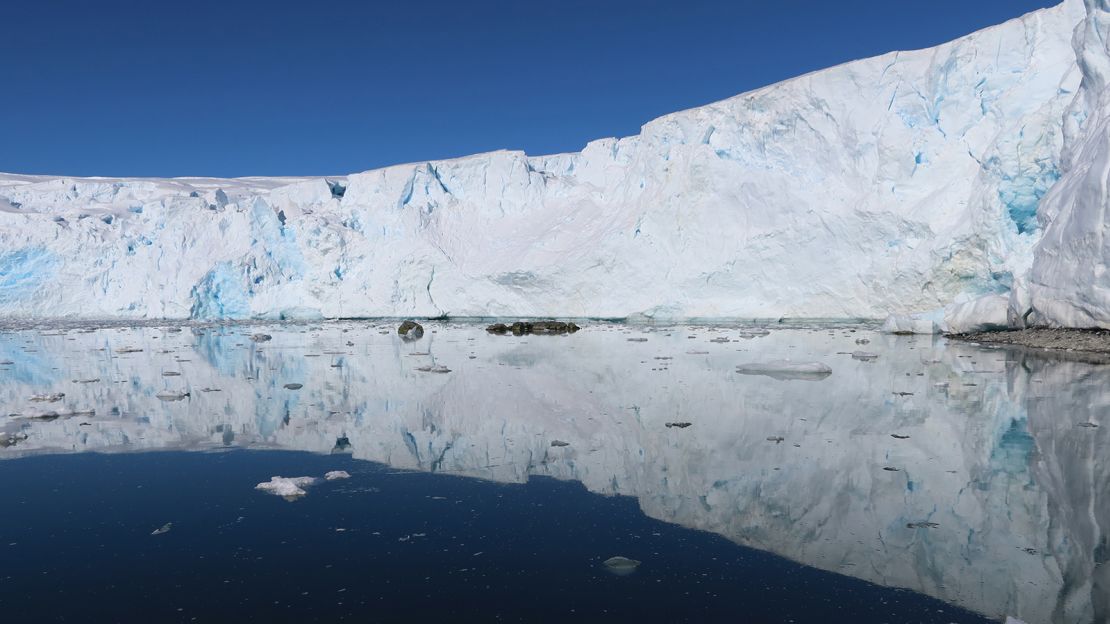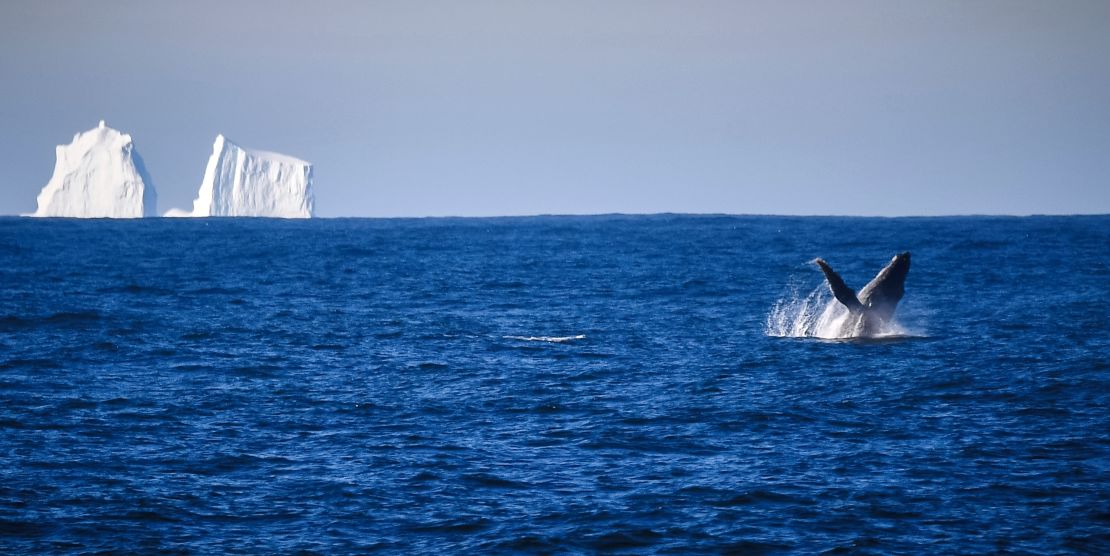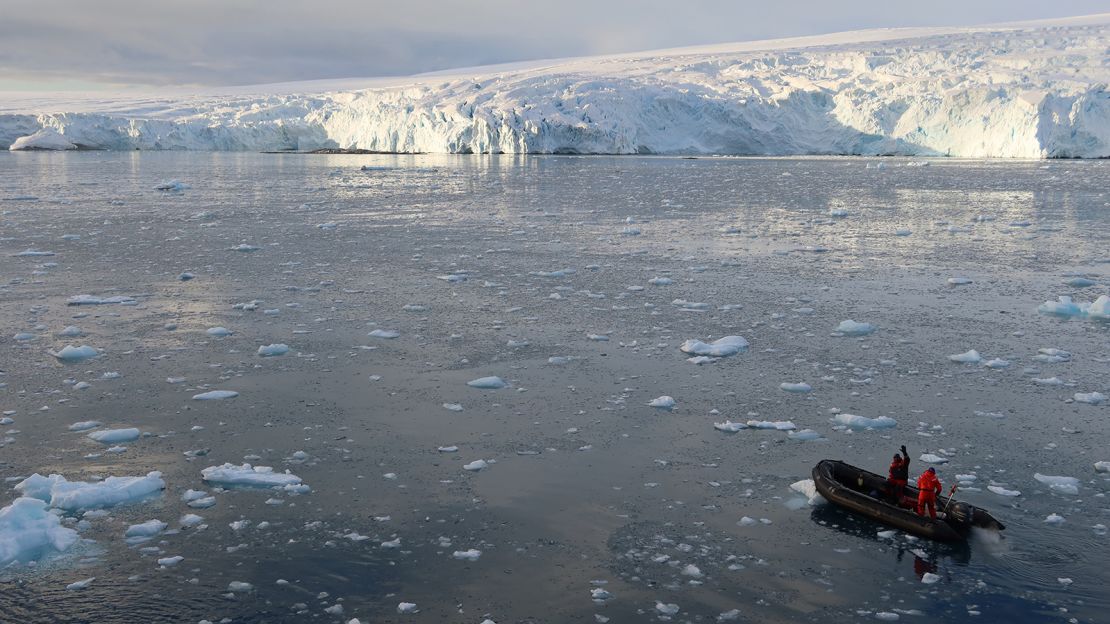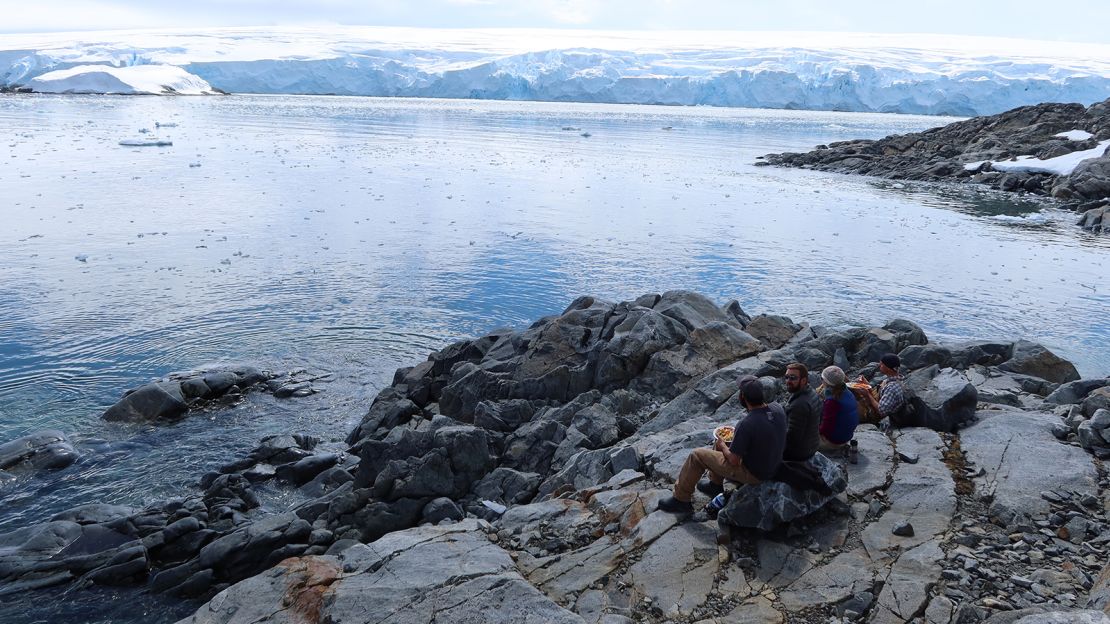While the rest of the world continues to grapple with the coronavirus pandemic, one continent has managed to remain entirely free of the infection.
Antarctica, the coldest place on Earth, is now considered the “safest place in the world,” with no confirmed cases at all.
The region had a close brush with Covid-19 when outbreaks hit the final cruise ships of the season, but the virus didn’t reach its frozen shores. And, because it’s currently descending into winter, when it’s completely cut off, it should stay that way for now.
Although there’s no official native population here – unless you count the many penguins, whales, seals and albatrosses – around 5,000 people, mostly scientists and researchers, currently reside in its 80 or so bases.
Keri Nelson, an administrative coordinator at Anvers Island’s Palmer Station, the most northerly US station in Antarctica, is one of them.
Safest place on Earth?

“I really don’t think there’s a person here right now who isn’t grateful to be here, and to be safe,” she tells CNN Travel via email.
“Some people are ready to head back home. To help people they love, and to be of use in other ways during this time in history.
“But all of us are very appreciative to be living in a place where this disease (and all of the health and lifestyle implications thereof) are absent.”
While they may be geographically disconnected from the pandemic, which UN secretary-general Antonio Guterres has declared the world’s most “challenging crisis” since World War II, Nelson and her colleagues are constantly keeping up with developments.
“I read everything I can about the dynamics of this situation,” adds Nelson, who has worked on the continent during winter and summer seasons since 2007.
“I feel like it’s my duty as a human to witness what is happening in the world.”
Robert Taylor is stationed at Rothera Research Station, a British Antarctic Survey (BAS) base on Adelaide Island off the west coast of the Antarctic Peninsula.
The 29-year-old, who is from Scotland, works as a field guide, providing assistance to scientific colleagues carrying out research and ensuring all field work and travel is conducted safely.
While he’s also kept a close eye on the crisis from the beginning, being so far removed meant he didn’t realize its seriousness for a while.
“I remember the reports coming out of China in early January,” says Taylor, who arrived in Antarctica around six months ago.
“Then the first few UK cases, and thinking that this was something minor and far away, that wouldn’t affect me.
“It dawned on me gradually, as it spread and grew in prominence in the media.”
Tourism impact

While Taylor, who has moved between Halley VI Research Station and Rothera during his time on the southernmost continent, is concerned about the situation and worried for his family, particularly his grandmother, he says it’s difficult to feel linked to what’s happening at times.
“It’s like being on the moon and looking down,” he adds. “We can see what’s going on, but it’s a long way away.”
Tourism has been thriving in Antarctica in recent years, with Arctic cruises becoming more and more popular.
According to the International Association for Antarctica Tour Operators, approximately 56,168 travelers visited the continent during the 2018 to 2019 season, marking a 40% increase on the previous year.
During that time, multi-million dollar overhauls were also confirmed for both McMurdo Station, the main US base in Antarctica, and nearby Scott Base, New Zealand’s Antarctic scientific outpost, with updated facilities, including new science labs and living quarters included.
Around 78,500 tourists were expected during the 2019 to 2020 season – the Antarctica season runs from November to late March.
However, stations began putting restrictions on tourist visits early in the year, as the virus began to spread around the world and the region was later put into lockdown, with all tourist visits canceled.
This came amid some incredibly close calls, including an incident which saw a group of Australian and New Zealand passengers on an Antarctic cruise ship evacuated after nearly 60% of those on board tested positive for the coronavirus.
Nelson, who often coordinates visits to Palmer Station, says the research station welcomed thousands of people last year, but numbers were down this season due to the crisis.
“Several ships stop by for tours of the station, and we also travel to larger ships to give lectures and do some educational outreach,” she explains.
“In late January, as we watched all of this unfold, we stopped hosting visits and traveling to the large ships, so there were many fewer visitors to Palmer Station this summer.”
It’s difficult to say what impact the absence of visitors could have, if any, on Antarctica’s tourism industry in the long term.
The number of visitors that arrive here is kept relatively low in order to protect the white continent’s pristine environment.
IAATO tour operators aren’t allowed to land a vessel with more than 500 passengers on board, and all coordinate with each other to ensure there’s only one vessel at a landing site at any given time.
Coping with isolation

While it still unclear how things will pan out in the coming months, those at Palmer Station, along with bases such as the Amundsen-Scott South Pole Station, where visitor numbers are much higher, remain hard at work, doing all that’s possible to ensure things are in place for next season.
Over in Rothera, there are no tourists, bar the occasional passing yacht or cruise ship, so things have stayed pretty much the same head count wise.
However, Taylor, who helps to maintain equipment at the base and generally keep facilities in order, notes the process of transporting personnel home has changed significantly.
“Normally it would involve a flight to Punta Arenas [Chile’s southernmost city] on the Dash-7 Aircraft operated by BAS, followed by onward travel via commercial airlines,” he explains.
“Now the RRS James Clark Ross (JCR) will remove the last of the departing BAS personnel from base and take them to the Falkland Islands, where they will join the Hebridean Sky, a passenger vessel recently chartered by BAS. This will make the long journey back to the United Kingdom.”
The vessel is due to leave in the next week or so, and once it does, he and the rest of the team at Rothera will be alone for about five months, with no personnel arriving or leaving.
Nelson, who splits her time between the Midwest and San Francisco when in the US, previously worked at McMurdo Station, and the South Pole station, before moving to Palmer Station, which currently has a population of just 20.
The 45-year-old, who showcases her Antarctic experiences on Instagram account Simply Antarctica, admits to finding the isolation challenging, even before the coronavirus crisis prompted a ban on visitors.
She copes with this by adopting many of the same techniques those outside of Antarctica are currently experimenting with while in quarantine.
“I try to find ways to entertain myself with personal projects,” she says. “And I also remember that time in my own head is a luxury.”
However, Nelson also just happens to be stuck in a place surrounded with exceptional wildlife and mesmerizing natural beauty.
“The bottom line is, this part of Antarctica is gorgeous,” she says. “And it’s not hard at all to get used to, and thrive in a place this beautiful.”
Greater freedom

However, she admits to feeling a strong sense of guilt at being so far away from her nearest and dearest during such a critical time in history.
“It’s so strange to be physically at the end of the world, while, at least initially, some people feared we really might be seeing the actual end of the world (or at least the end of the world in the way we know it,)” she explains.
“Sometimes I feel disconnected, and guilty that I’m not at home to – what, help? Simultaneously live the challenges everyone else is?
“Those of us here know that wouldn’t do anyone any good, and yet it’s easy to feel guilty.”
After committing to spending 18 months forgoing holidays and being separated from his family and friends, Taylor is bewildered by the notion he effectively has greater privileges than they do at this point in time.
“To find ourselves in the situation where we have more freedom than we would if we’d remained at home is difficult to process,” he says.
“Life and work here are inextricably interwoven. We are fortunate in the extreme to be able to go on with our lives and work.”
Life after coronavirus

Taylor is due to depart in April 2021, but notes he’ll have to wait to see “what the new state of play is” before making any strong plans for his return to the UK.
“They say that spending a season in Antarctica changes you,” he says. “But I can’t help but wonder if the rest of the world might change more in this time than we will.”
“We will carry on largely as though the coronavirus hadn’t happened. We have a gym, a music room, a library, a cinema… all the things we took for granted before, which those at home will miss.”
This sentiment is shared by Nelson, who was scheduled to leave at the beginning of April, but has extended this “until a winter relief crew arrives.”
When she, Taylor and the others finally return home, they’ll be greeted by a very different world. A new way of life they’ve only witnessed from a distance.
The seemingly simple things they enjoy here may well become a distant memory.
“Sometimes I’m very conscious of being an artifact,” says Nelson. “An echo. Still in a head space of an existence that’s already passed into history.
“We can still socialize at will, without fear, give high fives and hugs as we please, sit close together. We don’t have to react in fear if someone coughs.
“I’m so grateful for that, and I’m trying to really appreciate the last bit of time we have to live that existence.”
“But it’s also profoundly sad to acknowledge that these little things are so remarkable now.
“And when we leave here, we’ll leave all of that behind. I’m trying to force my brain to remember what this is like – to imprint this feeling of freedom and security – so I don’t forget later.”









